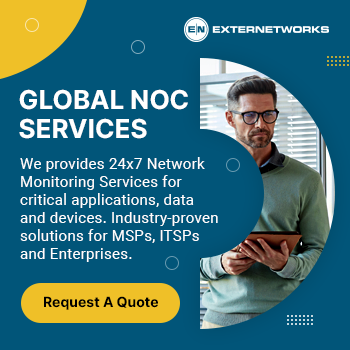What Do You REALLY Know About NOC Pricing?

Network Operations Center (NOCs) are essential for firms looking to identify and resolve network issues. Failure could mean interruptions of service and costly downtime.
However, as network infrastructure continues to evolve, managing it is becoming more challenging. Enterprises, therefore, need robust support. They require experts who understand how networks function and have the tools necessary to remedy problems as they arise.
Network pricing, though, remains a critical consideration. Firms not only need partners who can keep their systems running, but do so at a price that allows them to remain competitive.
Choosing an NOC service provider is not always an easy task for business decision-makers. The costs of such services are high – and so too are the stakes. Network downtime could result in brand damage and loss of revenues.
NOC Pricing: What Do You Get?
In this post, we look at what is included in the price when you choose an NOC.
Network Management
Network management goes beyond mere network monitoring. Under network monitoring, professionals track information in and out of your network, flagging potential issues as they arise.
Network management enhances this process. It lists actionable events, metrics, and trends and then alerts the relevant stakeholder. Furthermore, it is highly customizable, allowing organizations forward network information only to those it concerns.
Automation And Machine Learning (AIOps)
NOCs are also benefiting from ongoing improvements in automation and machine learning. Software is now able to complete low-risk tasks, even when dealing with vast datasets. This frees us NOC personnel to focus exclusively on high-value tasks and drill down on issues that the system flags more easily.
AIOps is a critical element of the NOC workflow. Providers are using it to mine data faster than humans can and then applying findings in real-world scenarios. AIOps tools send information to stakeholders in real-time (via an API, email or some other mechanism), and can also automatically tie events together. Machine learning allows NOC providers to also recognize new patterns over time, as they become more accustomed to network activity.
Ticketing
When enterprises experience problems with their network, they need to alert their NOC. Proper ticketing systems allow them to track issues by severity, urgency and other parameters. NOCs process these tickets accordingly, supplying resources where required.
Who receives NOC tickets depends very much on the nature of the issue. In some cases, standard network monitors can respond and apply fixes remotely. However, tickets may also call for escalation for specialists or even outsourced service providers.
Remote Monitoring
Another key feature of any NOC is remote monitoring. Remote monitoring services let users monitor the status of devices and servers across multiple locations. It’s especially useful for troubleshooting large networks.
The ability to view all devices simultaneously makes it possible to identify problems quickly. Remote monitoring can check for device failures, verify connectivity, and even measure bandwidth usage.
It’s important to note that remote monitoring isn’t just for IT staff. Users outside the organization can access it, too. For example, if a customer reports a problem with its network, the NOC can use remote monitoring to confirm whether there is a fault. If so, the NOC can dispatch a technician to fix the issue.
Security
Security is another area where NOCs have made significant strides. They’ve developed solutions to protect against cyberattacks, including DDoS attacks. These include firewalls, intrusion detection systems, and VPNs.
In addition, NOCs are increasingly capable of detecting insider threats. Some vendors offer software that looks for suspicious behavior within a company’s own network. Others provide analytics that detects unusual activity.
Finally, NOCs are becoming more adept at securing IoT devices. Many companies are deploying smart cameras and sensors that collect data and report back via APIs. As such, NOCs must ensure that these devices don’t threaten internal networks.
Reporting
Reporting has two major functions for NOCs:
- Identify long-term problems so that teams can fix them
- Improve management of NOC operations, including staff, processes, and equipment
To fix these problems, NOCs use various tools on both the front and backend, both supported by the fees that customers pay.
The first task is to collect data. NOCs will usually operate a “data lake” or warehouse. These are centralized repositories where they keep all their unstructured and structured data ready for use.
The second task is to develop frontend systems that operatives can use to measure network and internal performance. Tools offer both data exploration and visualization, enabling operatives to put evidence-based policies into action.
What to Look for in an Outsourced NOC Services Provider
When looking for an outsourced NOC services provider, look for one that has experience in the industry, and offers a variety of services such as data center colocation, managed hosting, cloud computing, and disaster recovery. The best providers also offer 24/7 monitoring, network support, and maintenance.
You should also consider how much you want to outsource your NOC operations. A small business may only need basic monitoring and reporting capabilities, while larger organizations might require a full suite of services.
Why Companies are Choosing to Outsource Their NOC
The main reasons why companies choose to outsource their network operations center (NOC) include:
- Cost savings: By outsourcing, companies can save money by reducing overhead costs. This includes hiring fewer people, buying less hardware and paying lower salaries than would be required to run a NOC internally. In addition, outsourcing reduces the risk of downtime caused by human error.
- Improved security: Outsourcing allows companies to hire experts who specialize in cybersecurity. When companies outsource their NOC, they gain expertise in areas like vulnerability assessment, incident response, and penetration testing.
- Better service quality: Outsourcing allows companies access to better technology. For example, some NOC providers have built their own data centers, allowing them to invest in cutting edge infrastructure. They can also afford to buy multiple servers, ensuring redundancy and uptime.
- Increased flexibility: Outsourcing gives businesses greater freedom when it comes to choosing what products to purchase. Instead of having to work with a single vendor, they can shop around for the best deal.
- Reduced complexity: Outsourcing allows companies to reduce the time spent managing their networks. It frees up resources to focus on other important tasks.
- Faster deployment: Outsourcing allows companies to deploy new technologies more quickly. Since there are no upfront costs associated with deploying new software, they can get started sooner.
- More reliable service: Outsourcing provides customers with peace of mind knowing that their IT infrastructure is monitored and maintained by professionals. If something goes wrong, they know that someone else will take care of it.
Advantages Of Network Operations Center – NOCs
Firms often choose to manage their own networks. However, using NOCs comes with several advantages.
NOCs, for instance, typically reduce upfront and ongoing costs. While there is an upfront fee, it is less than paying a single full-time salaried professional to manage the network. Capital requirements and ongoing expenses, therefore, are often lower.
Furthermore, NOCs can scale their activities to reflect changes in the underlying business. If the company grows, the NOC service can grow its resources concurrently, allowing for seamless development and management of the network.
NOCs are also helpful in bringing multiple management and monitoring functions into a single service offering. This way, they negate the need for brands to invest in disparate and complex administrative services.
Moreover, NOCs are adaptive. Enterprises often ask them to provide services that “fill in the gaps” of their existing monitoring and management setup. Hence, NOCs do not replace existing and well-tested setups. Instead, they augment them where necessary, and leave them undisturbed otherwise.
Wrapping Up
NOC pricing varies considerably from provider to provider, and depends on the level of support required. However, while average sales prices might seem high, the returns are also significant.
Firms that invest in quality network monitoring can avoid multiple costs and improve their overall operational robustness. NOCs invariably offer higher productivity, less downtime, and rapid resolution for common network-related issues.





